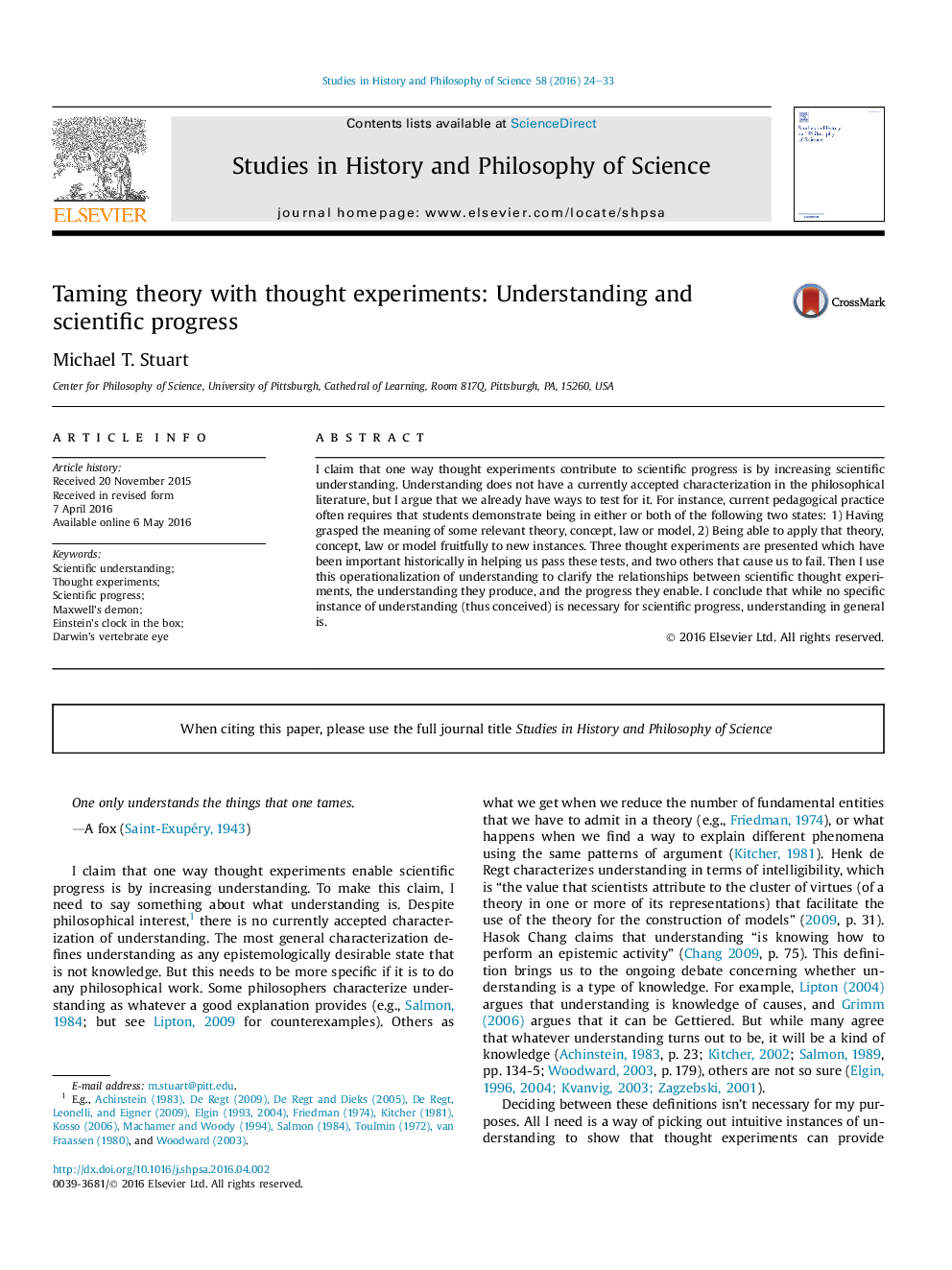| Article ID | Journal | Published Year | Pages | File Type |
|---|---|---|---|---|
| 1160326 | Studies in History and Philosophy of Science Part A | 2016 | 10 Pages |
•One way thought experiments contribute to scientific progress is by increasing scientific understanding.•A subject understands something if s/he can pass either of two tests: a meaningfulness test and a fruitfulness test.•I present three historically important thought experiments that help us pass these tests, and two others that do not.•I argue that while no specific instance of understanding is necessary for scientific progress, understanding in general is.
I claim that one way thought experiments contribute to scientific progress is by increasing scientific understanding. Understanding does not have a currently accepted characterization in the philosophical literature, but I argue that we already have ways to test for it. For instance, current pedagogical practice often requires that students demonstrate being in either or both of the following two states: 1) Having grasped the meaning of some relevant theory, concept, law or model, 2) Being able to apply that theory, concept, law or model fruitfully to new instances. Three thought experiments are presented which have been important historically in helping us pass these tests, and two others that cause us to fail. Then I use this operationalization of understanding to clarify the relationships between scientific thought experiments, the understanding they produce, and the progress they enable. I conclude that while no specific instance of understanding (thus conceived) is necessary for scientific progress, understanding in general is.
